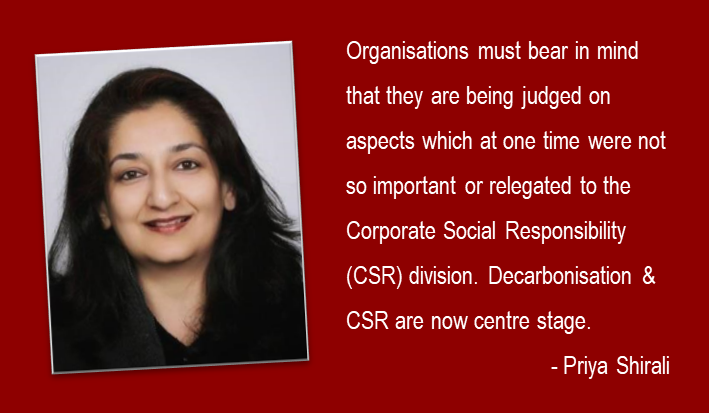At one time, wearing your heart on your sleeve was something that people, especially your parents, hoped you would eventually grow out of. Especially once you entered the workforce.
You would, then, let your head rule your heart, and take rational decisions based on sound data and information which would not only be gathered from reliable sources, but also be cross-checked. Such information-based thinking was thought to be a notch above emotion-led decision-making.
So, if you were contemplating buying a car, you would research the cars available and compare features, performance, fuel-efficiency, after-sales service and prices, in some order of reasoned priority. Of course, a Shah Rukh Khan extolling its virtues would help clinch a decision.
But how the company was run, what it did besides making cars, or how well or poorly it treated its labour or cared about the environmental cost of its business, were not your concern, or at best, only at the periphery of your consideration.
That was then.
A dramatic shift happened in August 2019, when the US Business Roundtable, a group of top CEOs in America, redefined the Purpose of a Corporation, altering it from ‘shareholder primacy’ alone to focus on what’s of value to shareholders and all other stakeholders: customers, employees, suppliers and broader communities. Environmental and social issues were now squarely on the corporate agenda.
In a Covid-afflicted world that urgently needs to reduce carbon emissions to hold off global warming, the idea is gaining currency.
According to industrialist Anand Mahindra, in an opinion piece titled ‘The Emergence of Good Businesses’, “The pandemic has intensified this discussion on the nature, role and purpose of business. The crisis provided an unflinching perspective on how businesses really conduct themselves — the level of scrutiny applied to businesses (and even, business leaders) has been unprecedented. And quite rightly so. Business is a useful metaphor for capitalism itself; the basis of our society, where and how we create value, and how we define success.”
According to him, the Mahindra Group conducted a study covering over 2,000 Indians and found that 62.42% of respondents cited ‘society’ and ‘community’ concerns as critical to their idea of a good business. As many as 70.27% of respondents claim that they would never invest in a business they did not consider to be genuinely good.
This change in perceptions is most pronounced amongst millennials. According to Deloitte’s recent Millennial Survey, “More than a quarter of millennials would choose not to purchase from an organisation because of its stance on a political issue, and 29% would do the same, based on the comments or behaviour of a company leader. 70% of millennials expect their employers to focus on societal or mission-driven issues.”
Organisations must now bear in mind that they are being judged on aspects which at one time were not so important or relegated to the Corporate Social Responsibility (CSR) division.
Decarbonisation and CSR are now centre stage. As integral parts of the Board Room Agenda and communication professionals must recognise that stakeholders have their hearts on their sleeve.
The views and opinions published here belong to the author and do not necessarily reflect the views and opinions of the publisher or the organisation she works for.



Be the first to comment on "Communication for the new-age company"